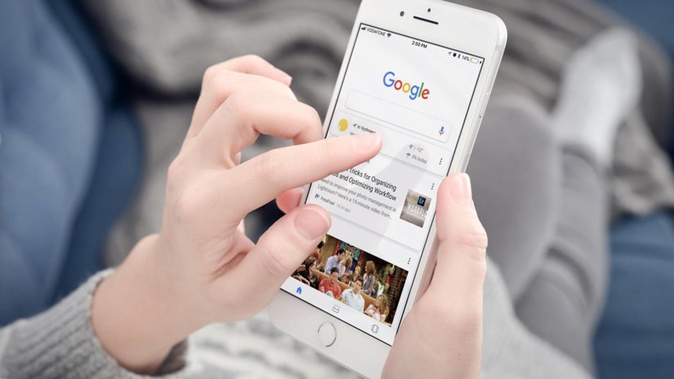
According to Google, Noah Yim:
- Is 18 to 24 years old
- Is male
- Uses English
- Works for a large employer (250 to 10,000 employees)
- Has a bachelor's degree
- Rents his home
- Has a high income
- Works in the technology/finance sector
- Is single
- Doesn't have children.
Given that I've never told Google most of this information, it's both impressive and frightening how much it got right.
"Holy s**t. Oh wow," said Dr Jodie Siganto of the Australian Privacy Foundation, as I read her Google's list of data about me.
And the list is mostly right. The only two things it got wrong are that I don't work in the technology/finance sector and I don't think I'm in the high-income bracket.
But these errors make sense: I am rather technology-friendly, I code a fair bit in my work, and I've written several stories about the consumer economy. And perhaps I spend more than I really should.
Google says that it knows all this information because my "signed-in activity on Google services (such as Search or YouTube) is similar to people who've told Google that they're in this category".
/cloudfront-ap-southeast-2.images.arcpublishing.com/nzme/SXQ6H4GYZVEVBZV7CEUFWXMDSQ.png)
Google's data about me. Photo / Google
In other words, there's a machine-learning algorithm that's running somewhere in Google's servers that is constantly trying to match my online activity to categories the algorithm has learned from other people.
Now scale this data up to the 1.8 billion people who have Google accounts – around a quarter of the world's population and almost half the number of people who are connected to the internet – and imagine that Google knows this much information about each of them.
Google does not have this amount of information on each account, and many people have more than one account.
Nonetheless, "it's a very detailed database", said Dr Siganto. "Through that, they can nudge you into making decisions."
She says that it's not just Google that has this kind of information but "probably more so Facebook because it has Facebook, WhatsApp, and Instagram".
According to Dr Siganto, the repercussions of companies having this level of access to data and the capacity to understand and parse it are far-reaching.
"It's not just decisions about what brand of makeup I'm going to buy, but it's political decisions – there are lots of other ways that your behaviour can be influenced by people who know you better than you know yourself," she said.
"It's the fact that they know where you live, or what your job title is, and then from that they might infer what your salary is. Or what your likelihood is to get into uni, to get a promotion, or if your parents are divorced."
It's easy to find out for yourself what Google knows about you here. I suggest that you search your web page for a colon ":" to get to the juicy stuff.
You can also go to your browser, go to Google → "Manage Your Google Account" (click on your profile on the top right) → "Data and Privacy" → scroll down a little to "Ad Settings" → "Ad personalisation", and feast on the veritable cornucopia of information.
Credit where credit is due – Google makes it relatively easy to find all the data it has about you in one place.
Facebook, on the other hand, has its data about me scattered under different headings and links.
Facebook tells me that my friends and I are "starting adult life". It also tells me I'm interested in a range of advertiser-friendly brackets, including "newspapers", "K-pop", and "web analytics", which are all correct.
Dr Siganto said that using a virtual private network, turning off app tracking on an iPhone, using incognito or private mode on a browser when possible, and using privacy-focused browsers like Mozilla Firefox instead of Google Chrome can help users protect their privacy.
She also recommended that users look at privacy settings on social media, browsers and devices.
A Google spokesperson noted that users could turn off advertising personalisation and said that Google exercises discretion in collating and parsing user data.
"Google never uses information from Gmail, Drive, Calendar and Photos for ads purposes," they said.
"Google does not sell users' personal information."
- Noah Yim, news.com.au
Take your Radio, Podcasts and Music with you









